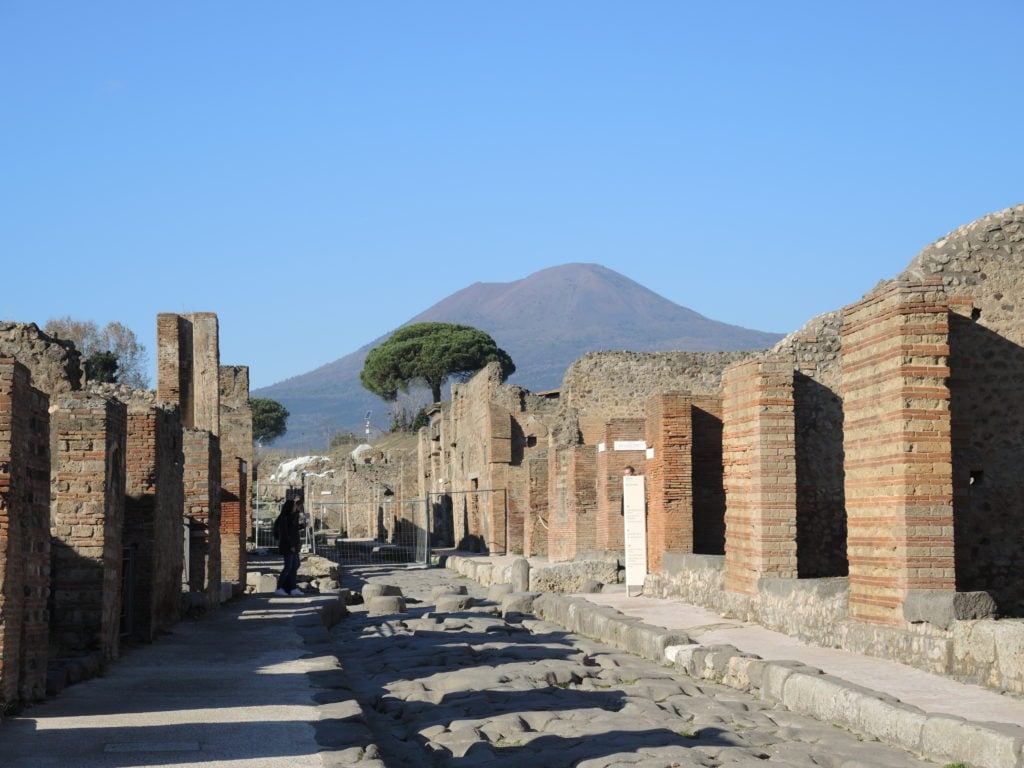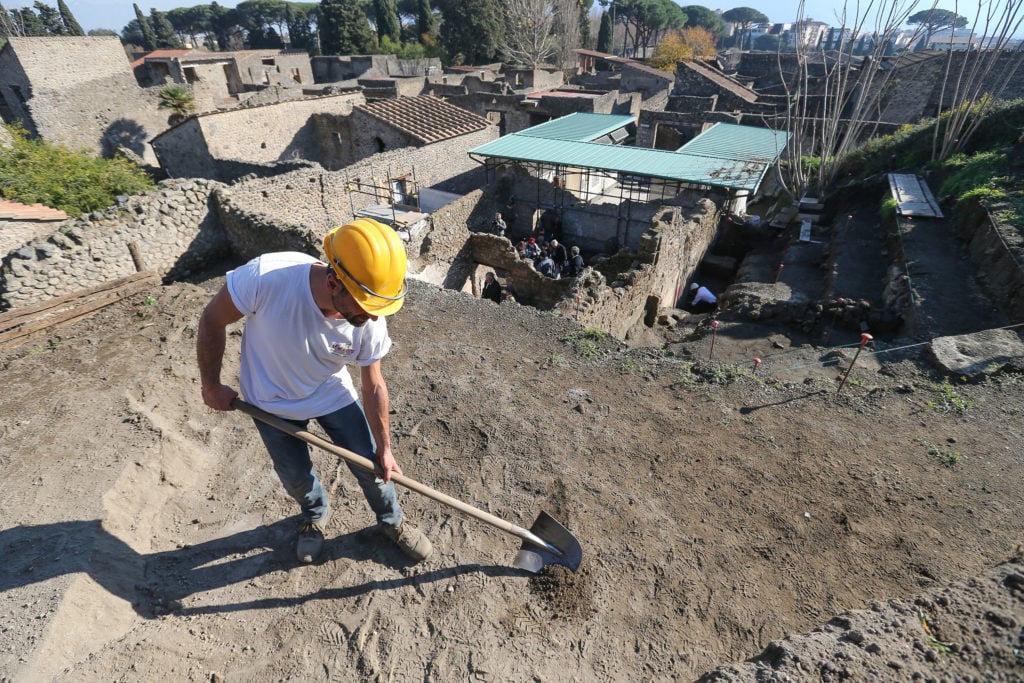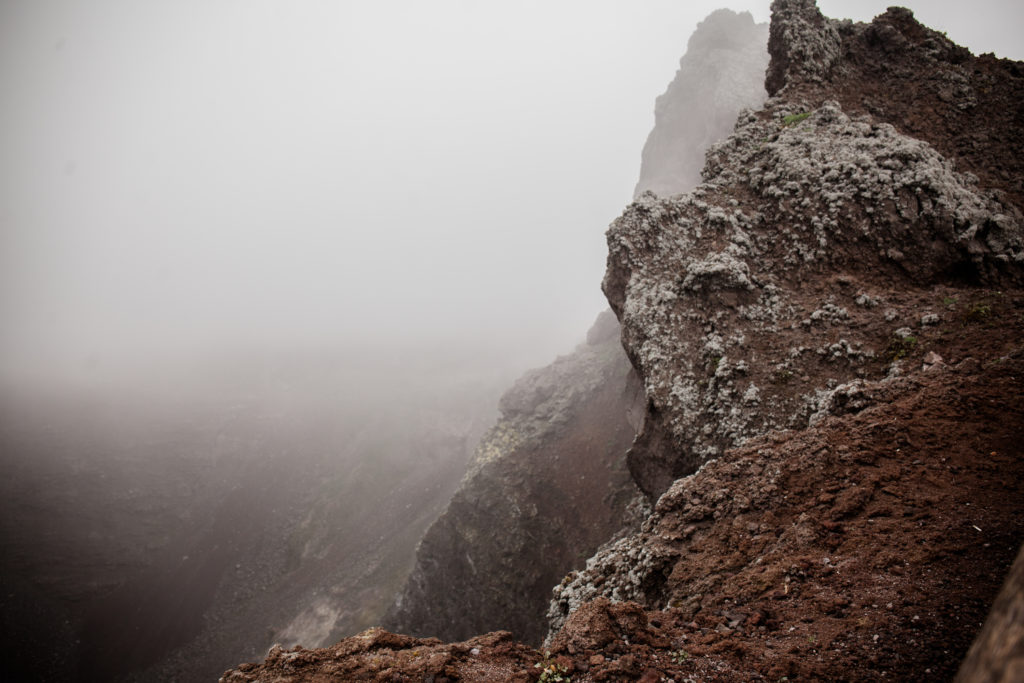Art World
Volcanologists Are Mad That Excavations to Uncover Roman Artifacts in Pompeii May Hinder Their Study of Ancient Lava
Volcanologists are facing off with archeologists over the value of ancient artifacts vs. ancient lava.

Volcanologists are facing off with archeologists over the value of ancient artifacts vs. ancient lava.

Sarah Cascone

Archaeologists and scientists are at odds at the ancient city of Pompeii, famously frozen in time by the eruption of Mount Vesuvius in the year 79.
The historic volcano blast “left behind not only intimate details of daily life in the Roman empire, but also an extraordinary record of how volcanoes behave,” wrote Roberto Scandone, a professor of volcanology at Rome’s Università Roma Tre, in a letter to the editor of the journal Nature, coauthored by Lisetta Giacomelli, Mauro Rosi, and Christopher Kilburn.
“These archaeological and volcanic histories together offer a unique insight into how societies live and die in the shadow of a volcano,” the letter continues. “It is alarming, therefore, that volcanic deposits are being sacrificed during archaeological excavations.”
Excavations have been taking place at Pompeii since the 1700s, and are still yielding remarkable discoveries of multicolored frescoes and other artifacts of ancient life. But scientists have also done important research on the site, with studies of volcanic deposits revealing that the people of Pompeii didn’t die from the falling pumice, but from the explosion of pyroclastic flow, a deadly combination of magma, hot ash, and gases. Learning more about historic volcanic activity could help protect the region’s 600,000 residents from future eruptions.

Restorer at work in the Schola Armaturarum, the first excavation of Pompeii in an area that has never been investigated, after more than 20 years, in 2012. Photo by Marco Cantile/LightRocket/Getty Images.
“Most of the deposits from 79 AD eruption are covered by urban sprawl,” Kilburn, a volcanologist at the University College Londons, told Newsweek. “Archaeological sites, such as Pompeii and Herculaneum, are thus among the rare locations where we can dig through the entire sequence of the 79 AD deposits. On top of that, we can link the volcanic processes directly to their impact on a town—which is vital for understanding what might happen in the future.”
The letter’s authors have asked Italy’s minister of culture to ensure that current Pompeii excavations “leave strategic portions of the volcanic deposits untouched,” arguing that this would ensure the volcano and the ruins of Pompeii and nearby Herculaneum can become “a natural super-museum for generations to come.”

A view of Mount Vesuvius in Naples, Italy, on April 28, 2019. Vesuvius, it is regarded as one of the most dangerous volcanoes in the world because of the population of 3,000,000 people living nearby, making it the most densely populated volcanic region in the world, as well as its tendency towards violent, explosive eruptions of the Plinian type. Photo by Paolo Manzo/NurPhoto/Getty Images.
An additional press release from the letter’s authors notes that the effects of archaeological excavations are “disastrous for volcano science,” characterizing the work done at Pompeii as nothing short of “an act of vandalism to volcanology.”
Massimo Osanna, general director of the Great Pompeii Project, assured Newsweek that volcanologists have been supervising the excavations and taking samples, but according to Scandone, their requests that some volcanic deposits be preserved in place have thus far been ignored.
“There’s a sense of frustration that volcanology is not being taken terribly seriously,” Kilburn told the Guardian. “You go to Pompeii and there’s virtually no mention of the volcano at all.”